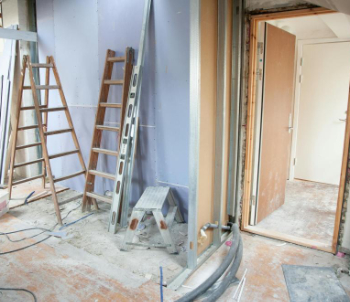Housing Grants, Construction and Regeneration Act HGRA
Contents |
[edit] Introduction
The Housing Grants, Construction and Regeneration Act 1996 (HGRA - also known as the Construction Act) is intended to ensure that payments are made promptly throughout the supply chain and that disputes are resolved swiftly.
Provisions of the act include:
- The right to be paid in interim, periodic or stage payments.
- The right to be informed of the amount due, or any amounts to be withheld.
- The right to suspend performance for non-payment.
- The right to adjudication.
- Disallowing pay when paid clauses.
The Act applies to all contracts for 'construction operations' (including construction contracts and consultants' appointments). If contracts fail to comply with the act, then the Scheme for Construction Contracts applies.
[edit] 2011 amendments
The act was amended in October 2011 to close loop holes within its provisions.
The act now applies to construction contracts including those that are not in writing. Adjudication clauses must still be in writing, otherwise the scheme for construction contracts applies.
It is no longer allowable to define within a contract who should bear the cost of adjudication, and adjudicators have the right to correct errors in their decisions within 5 days of delivering that decision.
Specific changes have also been made regarding procedures for making payments:
- The dates for payments must be set out in the contract.
- The client (or specified person) must issue a payment notice within five days of the date for payment, even if no amount is due. Alternatively, if the contract allows, the contractor may make an application for payment, which is treated as if it is the payment notice.
- The client (or specified person) must issue a pay less notice (previously a withholding notice) if they intend to pay less than the amount set out in the payment notice, setting out the basis for its calculation.
- The notified sum is payable by the final date for payment.
- If the client (or specified person) fails to issue a payment notice, the contractor may issue a default payment notice. The final date for payment is extended by the period between when the client should have issued a payment notice and when the contractor issued the default payment notice. If the client does not issue a pay less notice, they must pay the amount in the default payment notice.
- Pay when certified clauses are no longer allowed, and the release of retention cannot be prevented by conditions within another contract. So for example work contractors on a management contract project must have half of their retention released when their part of the works reach practical completion, not when the project as a whole reaches practical completion. This also applies to trade contractors on construction management contracts.
- There are also changes to the right to suspend work for non-payment or to suspend part of the works and to claim costs and expenses incurred and extension of time resulting from the suspension.
[edit] Retentions
The Construction (Retention Deposit Schemes) Bill 2017-19 proposes amending the Act to ensure that retentions are held in a third party trust.
For more information see: Retentions reform.
[edit] Related articles on Designing Buildings
- Adjudication.
- Arbitration.
- Causes of construction disputes.
- Collaborative practices.
- Common law.
- Construction contract.
- Construction (Retention Deposit Schemes) Bill 2017-19.
- Construction supply chain payment charter.
- Down payment chain.
- Egan report.
- Fair payment practices.
- Government construction strategy.
- Hybrid construction contract.
- Latham report.
- Local Democracy Economic Development Act 2009.
- Pay less notice.
- Payment schedule.
- Prompt payment code.
- Remedies for late payment.
- Scheme for Construction Contracts.
- The Late Payment of Commercial Debts Regulations 2013.
[edit] External references
Featured articles and news
Considerate Constructors Scheme acquires Building A Safer Future
Acquisition defines a new era for safety in construction.
AT Awards evening 2024; the winners and finalists
Recognising professionals with outstanding achievements.
Reactions to the Autumn Budget announcement
And key elements of the quoted budget to rebuild Britain.
Chancellor of the Exchequer delivers Budget
Repairing, fixing, rebuilding, protecting and strengthening.
Expectation management in building design
Interest, management, occupant satisfaction and the performance gap.
Connecting conservation research and practice with IHBC
State of the art heritage research & practice and guidance.
Innovative Silica Safety Toolkit
Receives funding boost in memory of construction visionary.
Gentle density and the current context of planning changes
How should designers deliver it now as it appears in NPPF.
Sustainable Futures. Redefining Retrofit for Net Zero Living
More speakers confirmed for BSRIA Briefing 2024.
Making the most of urban land: Brownfield Passports
Policy paper in brief with industry responses welcomed.
The boundaries and networks of the Magonsæte.
London Build Fire and Security Expo
20-21 Nov and now with new Ambassador Programme..
The Scottish Building Safety Levy
Eight weeks of consultation closing on 18 November.
The grey, the brown and the golden rules of housing
shifting policies from the wild west of housing development.
Future proofing homes that are fit for purpose
Specification challenges and the role of plastic.
Thousands of new homes unlocked for brownfield sites
£68 million to 54 councils for neglected land into new homes.
























Comments
To start a discussion about this article, click 'Add a comment' above and add your thoughts to this discussion page.